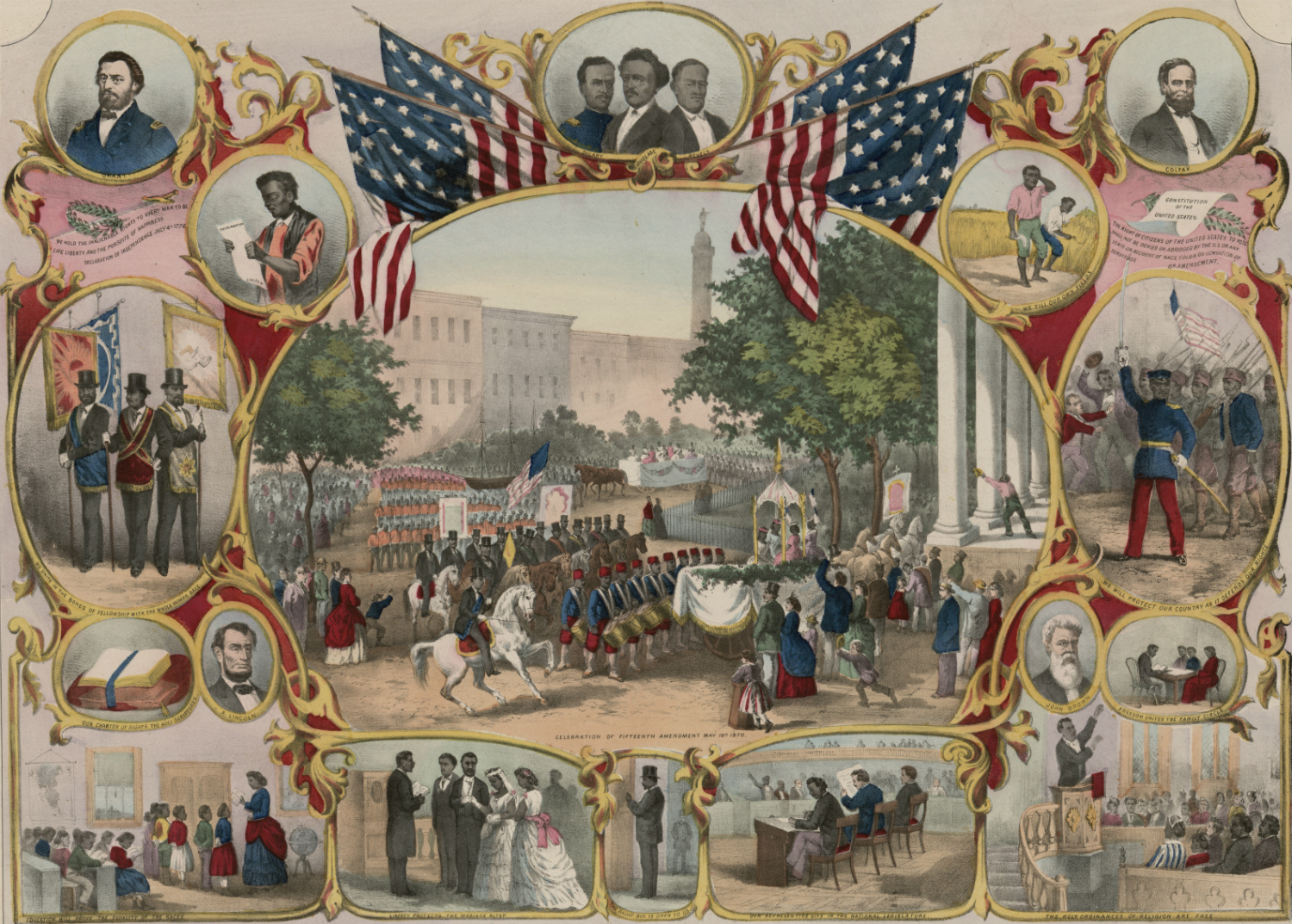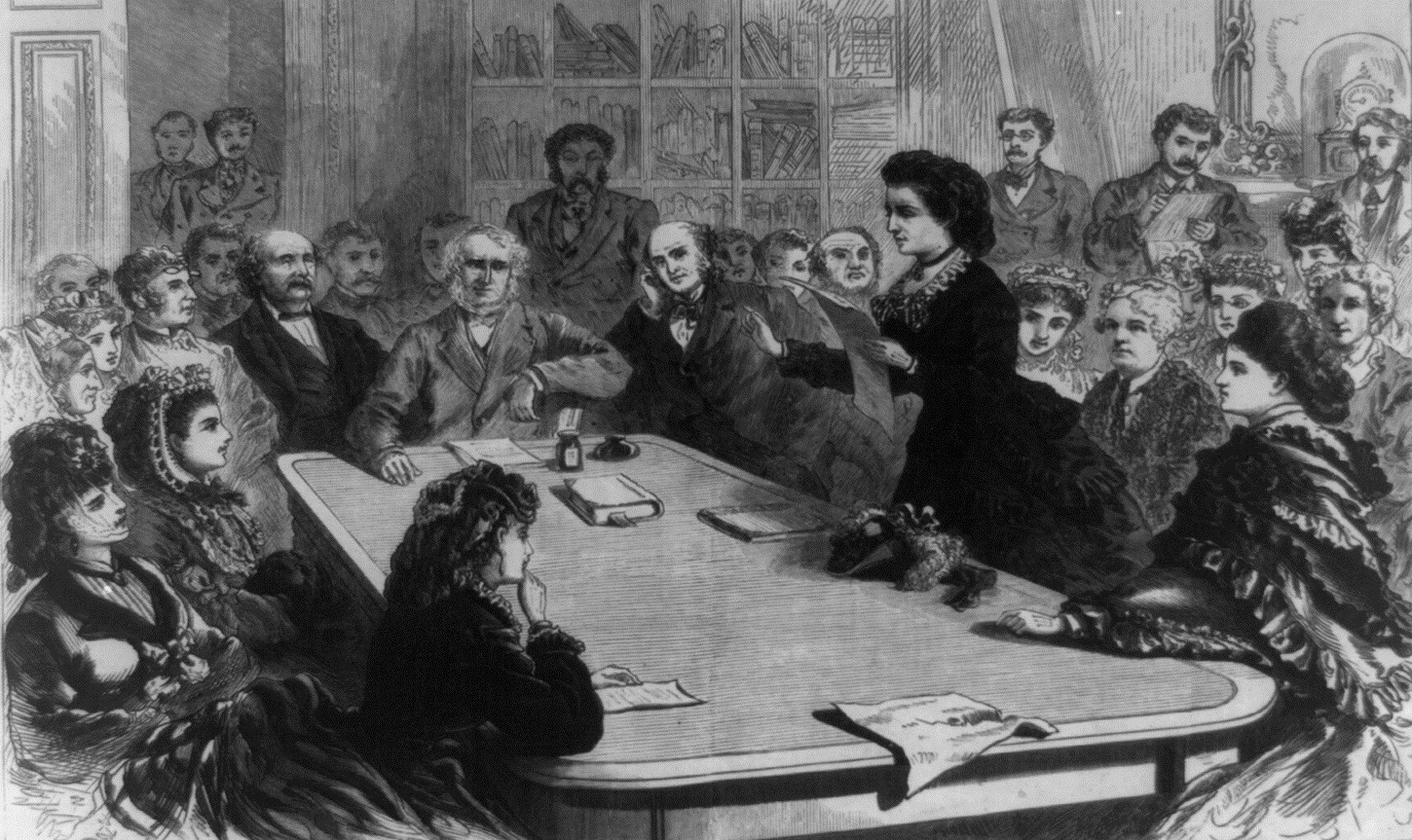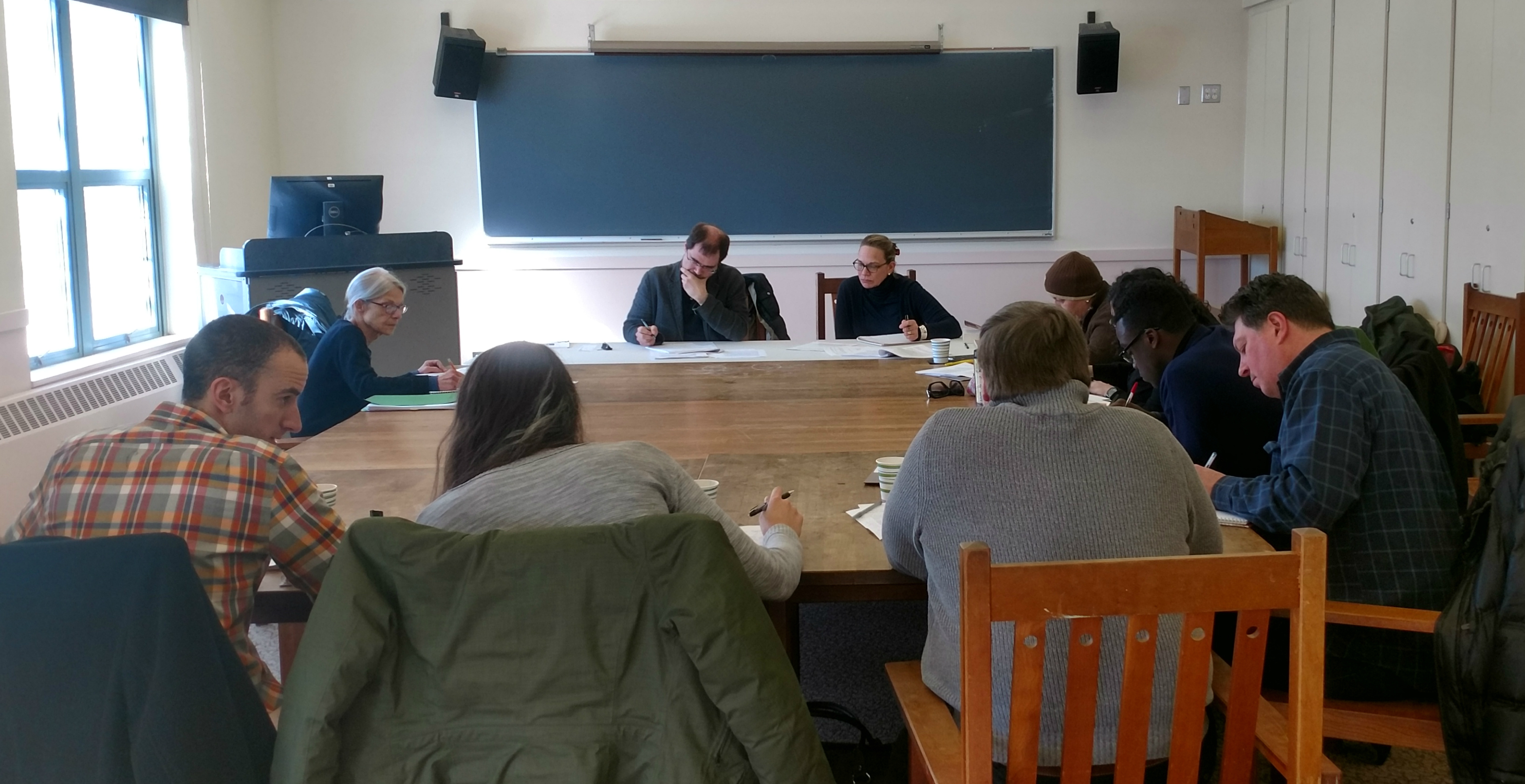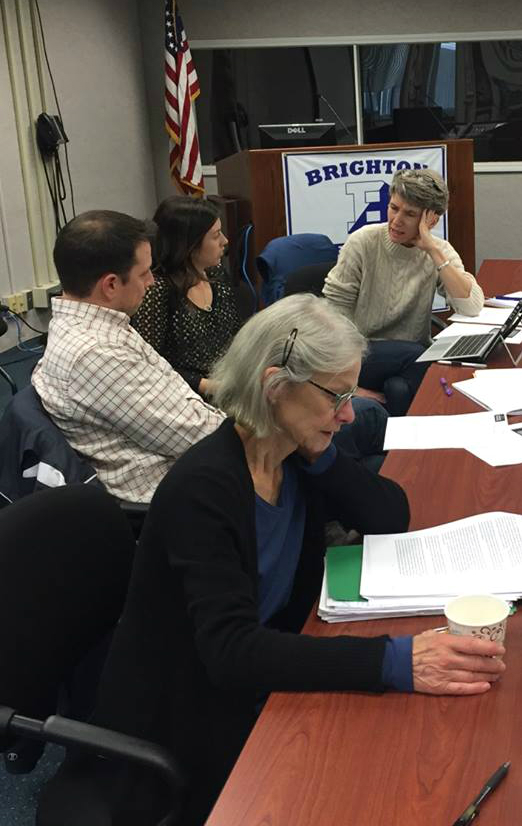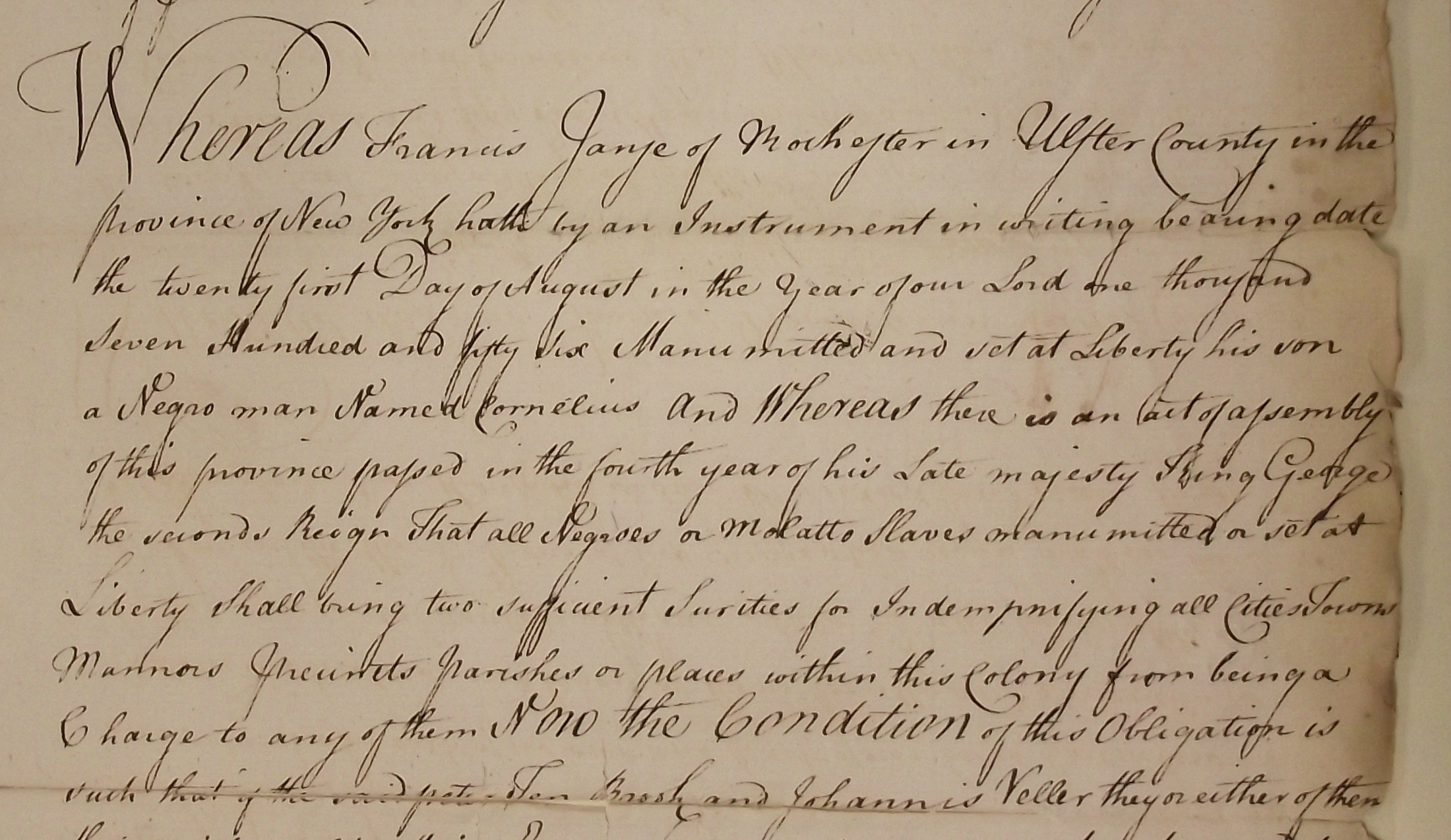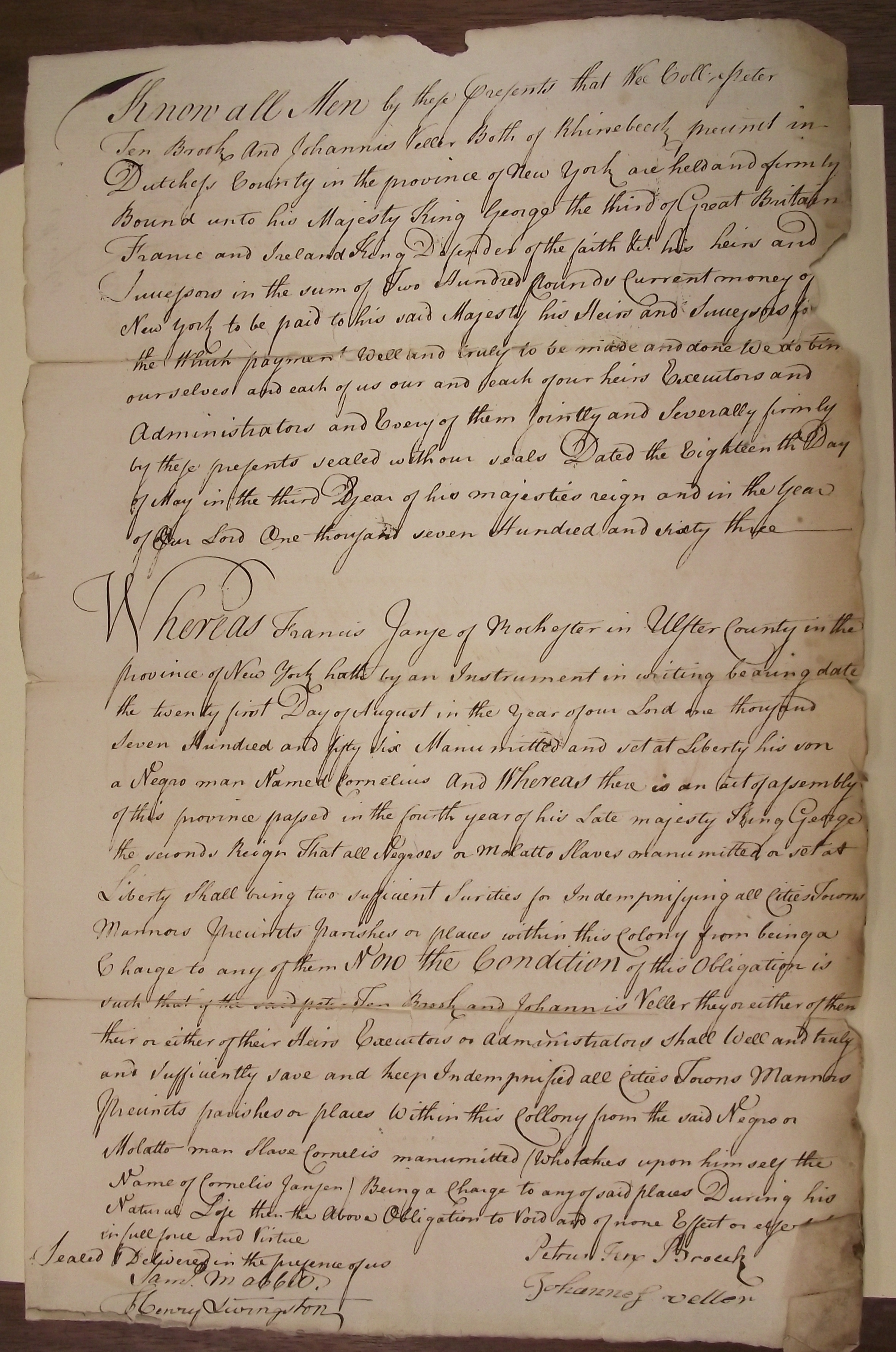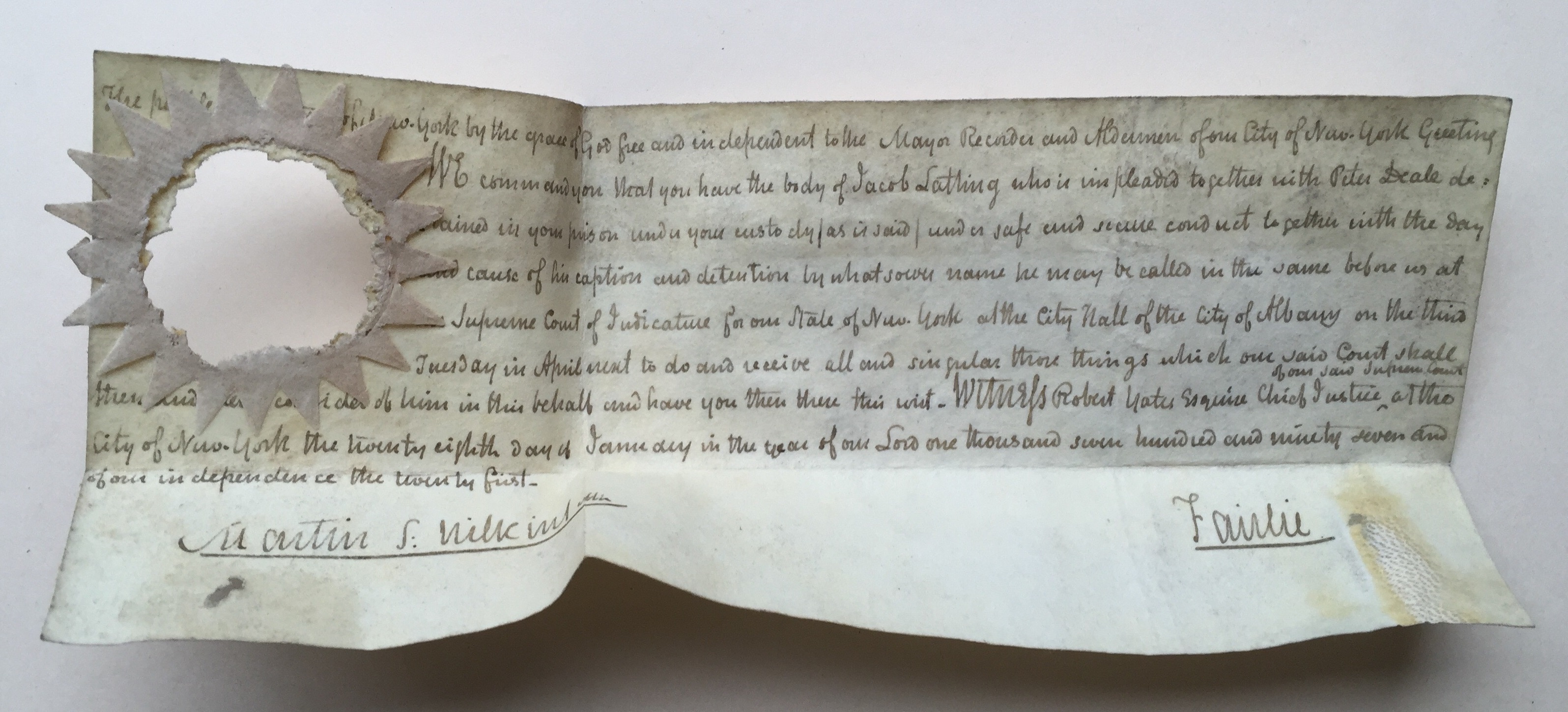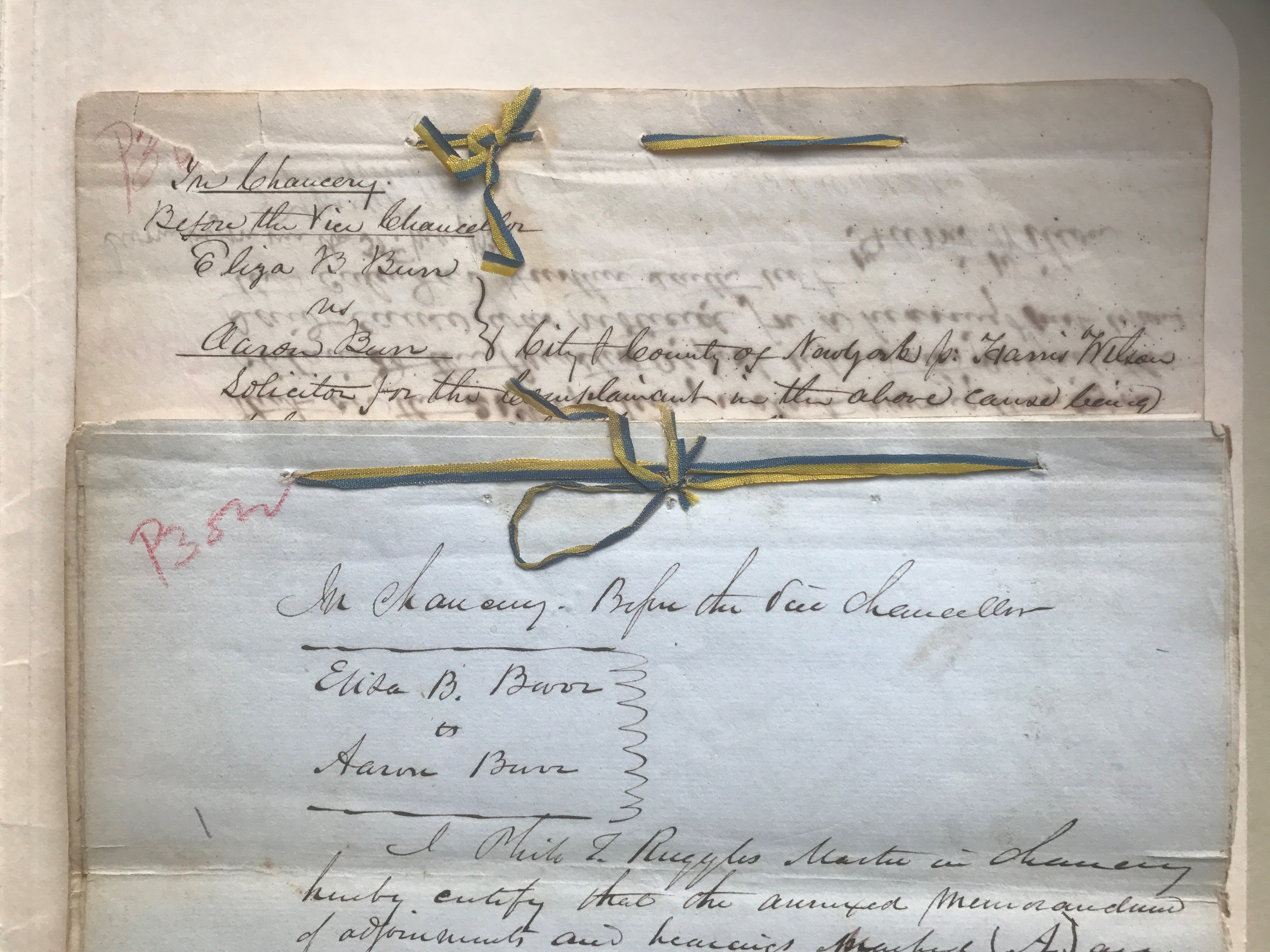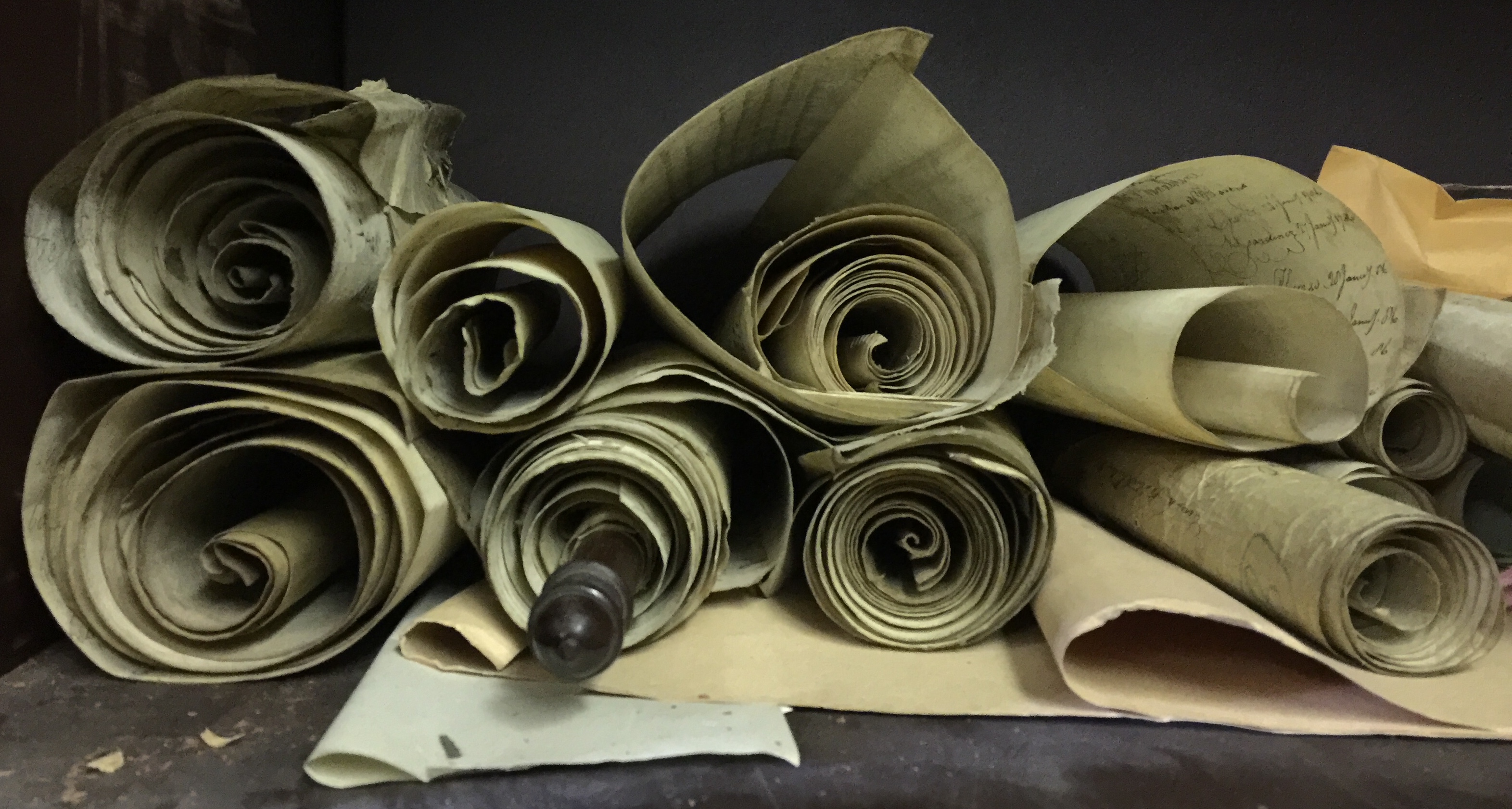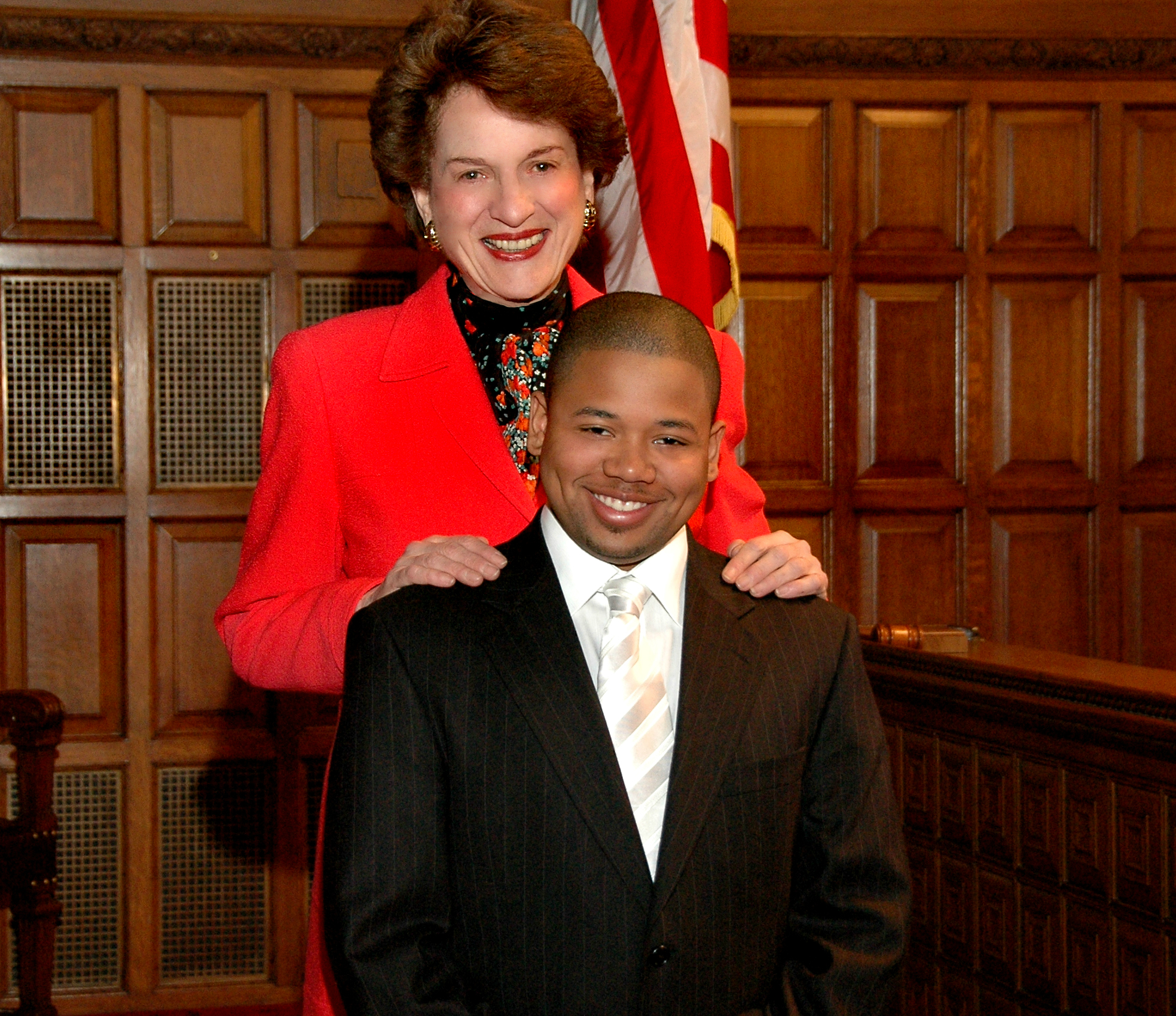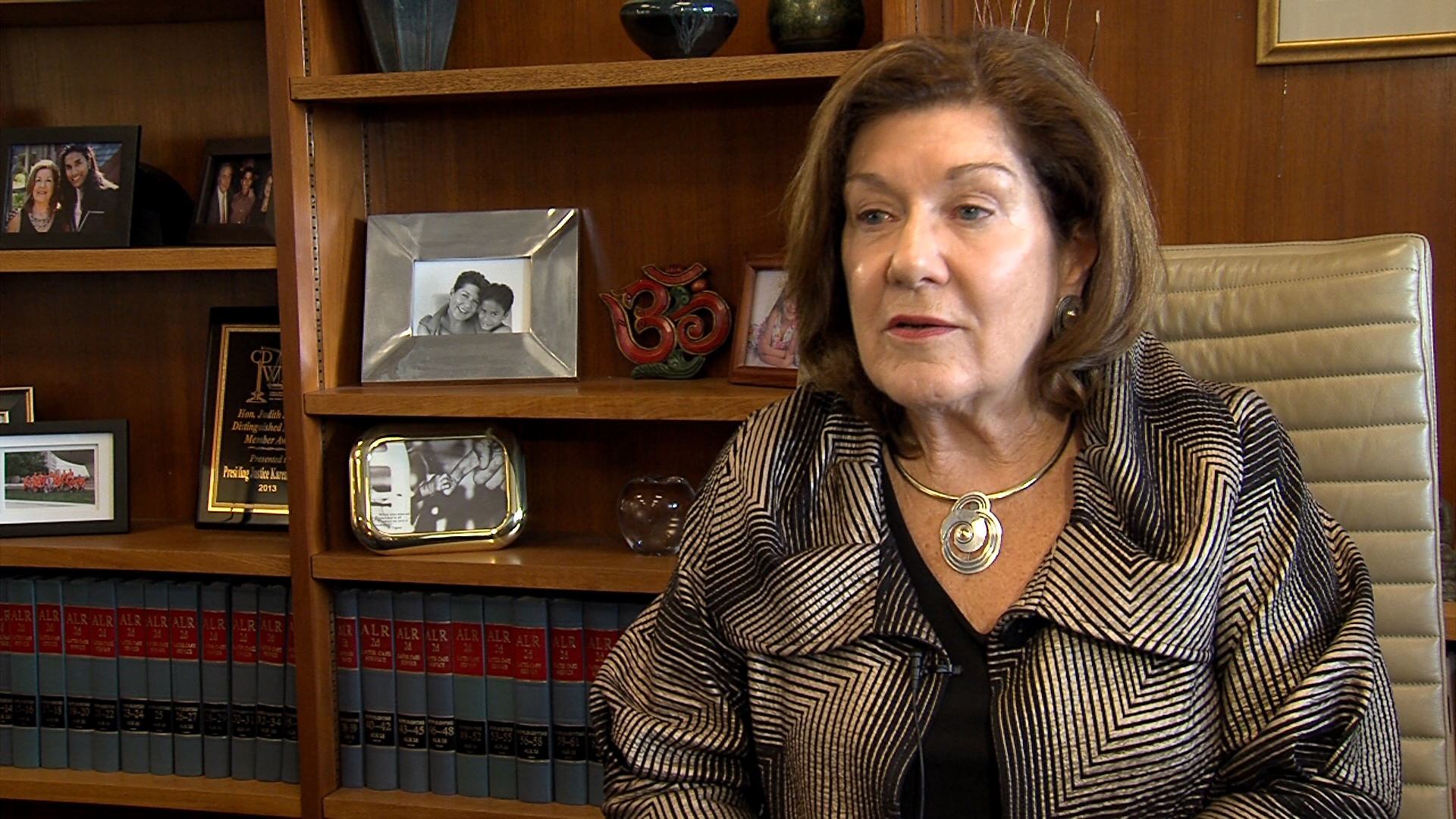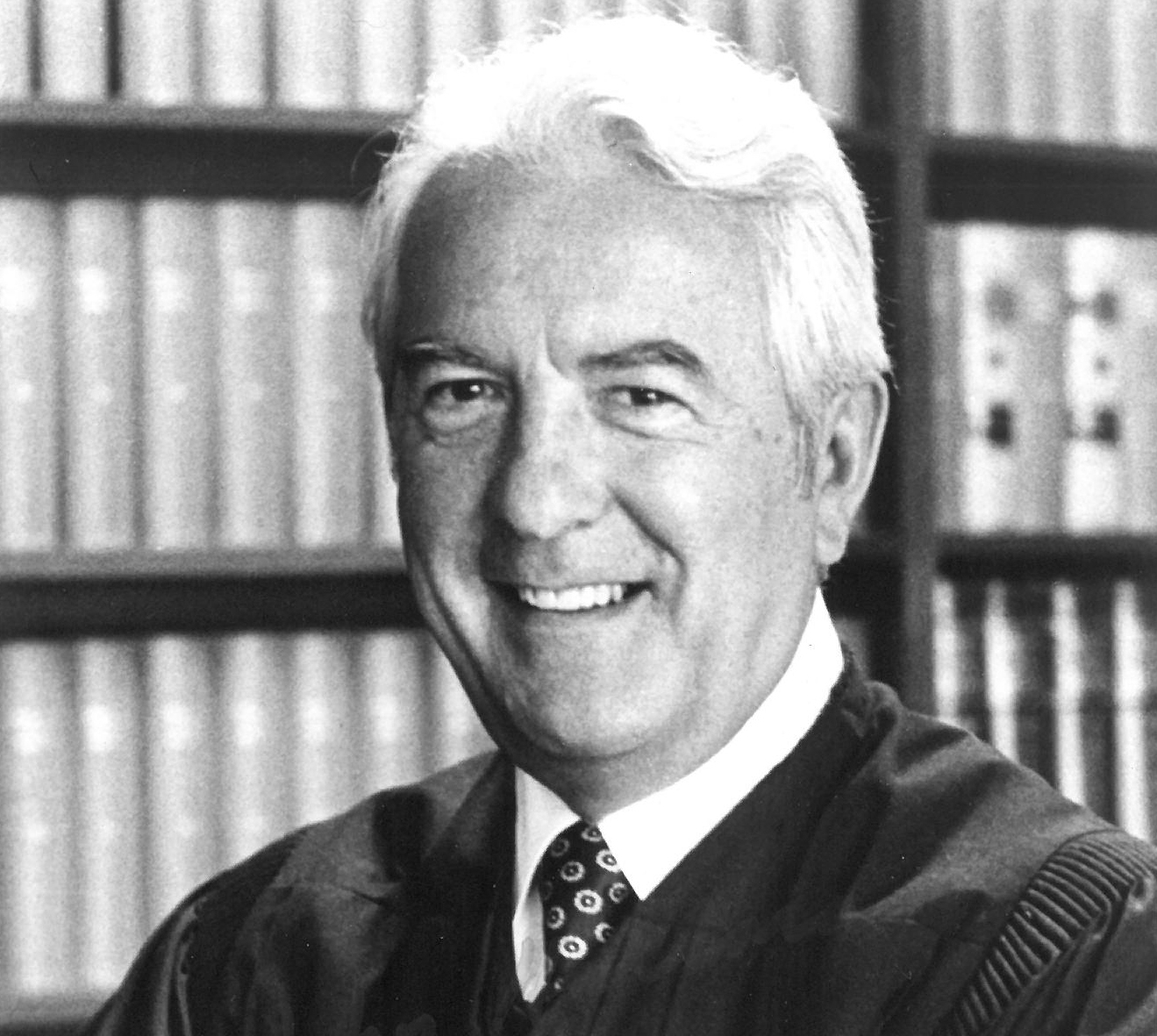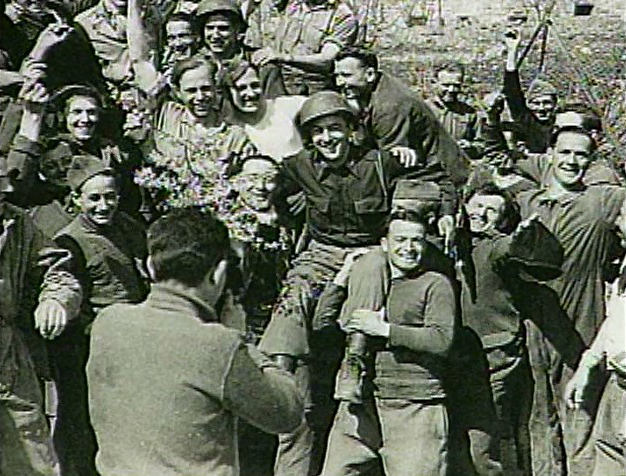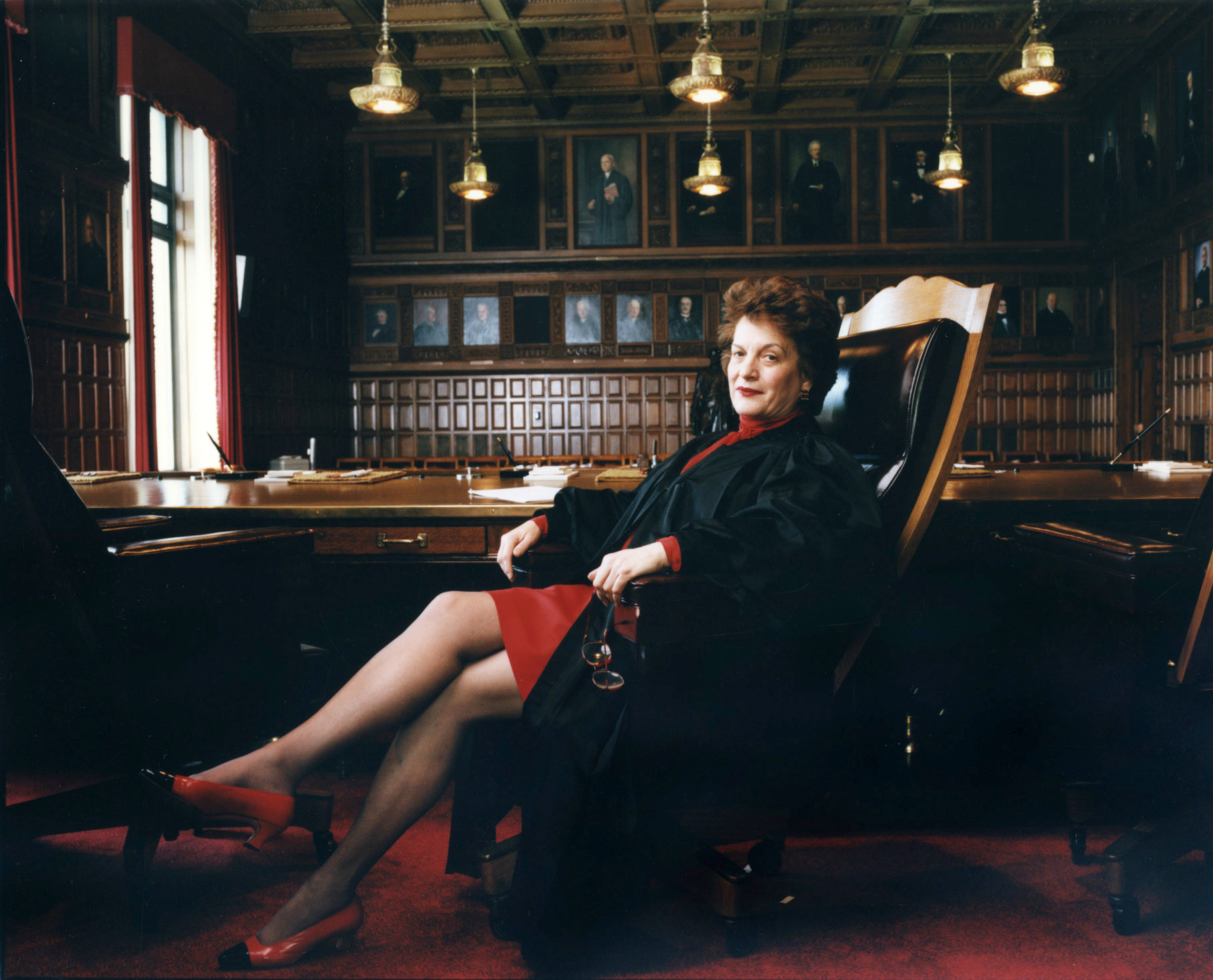This article was written by Craig A. Landy, a partner at NYC firm Peckar & Abramson, PC. Mr. Landy talks more extensively about this topic in Issue 12 of The Historical Society of the New York Courts’ Judicial Notice, a journal of articles of historical substance and scholarship that uniquely focuses on New York legal history. This latest issue of Judicial Notice is ready to be shipped out and is only available to Society Members. Don’t miss out and Join the Society!
Photo: The Fifteenth Amendment. Celebrated May 19, 1870.
Pub. by Thomas Kelly, New York, c. 1871, showing the grand celebratory parade in Baltimore. A similar parade in New York City on April 8, 1870 drew over 1,500 spectators and over 7,000 participants. Library of Congress, Prints & Photographs Division, LC-DIG-pga-01767
When did slavery end in New York State? That’s not an easy question to answer. In 1799, New York gradually freed future generations who would otherwise have been born into slavery, but left enslaved thousands born before 1799. It was not until March 31, 1817 that the New York legislature ended two centuries of slavery within its borders, setting July 4, 1827 as the date of final emancipation and making New York the first state to pass a law for the total abolition of legal slavery. When Emancipation Day finally arrived, the number of enslaved men and women freed was roughly 4,600 or 11% of the black population living in New York and the black community and its supporters held joyous celebrations and parades throughout the state.
Slavery existed in New York State from colonial times through the creation of the modern state. Alexander Hamilton, John Jay and other prominent New Yorkers owned slaves at one time, but the more reform-minded of these formed organizations to end slavery in New York, such as the New York Manumission Society. New York’s free African-American community also led the anti-slavery movement through activist ministers and tireless black abolitionists.

